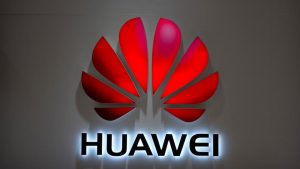
Global Vice President of Huawei, Hou Tao, has emphasised the importance of digital inclusiveness for Africa’s development.
Tao noted that digital economy is outperforming all other sectors in terms of speed of growth, the dynamics of innovation, and the scope of influence.
He expressed delight that 40 per cent of the African population have been currently connected to the Internet while only 10 per cent of people were connected in 2010.
He said, “Everyone’s being connected is what we have been pursuing while providing connectivity to all Africans requires improvements to the continent’s rural network through strong, targeted policies, as well as boosting investment in existing digital infrastructure from both private capital and governments. Moreover, authorities also can provide a sufficient spectrum, grant licenses that facilitate the flexible use of new and emerging technologies, allow operators to operate freely, and provide clear information about future spectrum expansions and auctions.
“Why are we stressing the importance of connectivity? Because Huawei envisions a digitally inclusive society, where the opportunities offered by digital technology are accessible to all, including those who do not have regular and sustainable access to the Internet. Rational and efficient allocation of spectrum and facilitation of access is an effective way to achieve digital inclusion for all.
“Thus, digital inclusivity is not simply a buzzword: it refers to the activities necessary to ensure that all individuals and communities, including the most disadvantaged, have access to affordable, robust broadband internet service, internet-enabled devices that meet the needs of the user, access to digital literacy training, quality technical support and applications and online content designed to enable and encourage self-sufficiency participation and collaboration.
“As a close partner of African people, Huawei believes that no one should be left behind in the digital world, so we are committed to making long-term, non-profit investments centered on the vision of digital inclusion, such as TECH4ALL initiatives. One of the efforts is the “Learn On” action initiated after Covid-19 last year, which is a project to ensure the continuity of education. With the idea of “Learning Never Stops”, a multimedia-based learning experience was provided to countries like Senegal where the schools were shut down because of the pandemic. And in Senegal alone, over 200 teachers were trained and 15,000 students benefited from the project.
“Huawei is cooperating with over 600 universities in more than 20 African countries to enable students with advanced ICT knowledge and skills through Huawei ICT Academy, which helps them stand out in the competitive job market. Huawei also provides telecom operators with innovative, secure and reliable network products and solutions. We are committed to accelerating the development of the digital economy in African countries by strengthening the infrastructure in each of these spaces, and helping bridge the digital divide in remote areas.”
 DailyrecordNg …Nigeria's hottest news blog
DailyrecordNg …Nigeria's hottest news blog








